How to Make the Most of a Crisis
Along with Stress Reducing Exercises
These are unprecedented times for all of us globally. All of the 7.7 billion people in the world need to work synchronously for one common cause. Not as one race, one nation, or one profession but as one species.
The past few weeks have been challenging on our bodies both physically and mentally. Most of us are confined to the corners of our homes, past the temporary feeling of being on a stay-cation, and feeling the ‘itch’ to move, stretch, and exercise.
I also wrote this for healthcare workers like me who need a reprieve, a momentary distraction to escape the chaos.
I have a few pointers that I hope will help you get through this as well as some stretches specific to yoga that can help relieve muscle soreness from sustained postures.
For in the words of Winston Churchill, never let a good crisis go to waste.
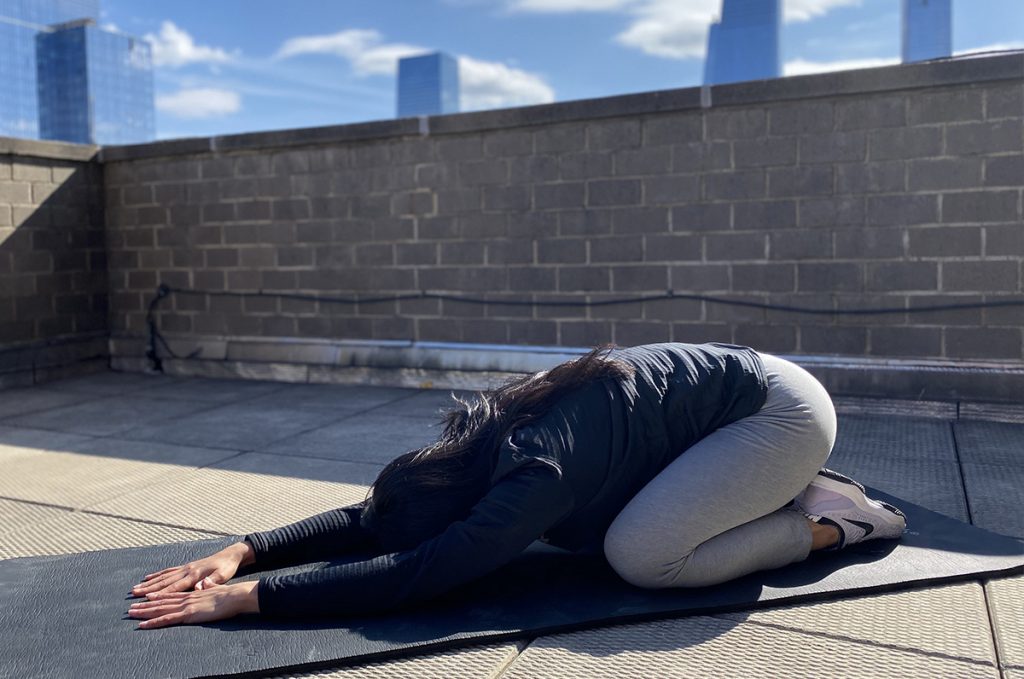
Balasana (Child’s Pose): Stretches your hips, back and knees. Relieves fatigue and anxiety.
1. Stick to your usual routine as much as possible.
Simulate the waking up, taking a shower, walking to work in your house for the first 30 minutes before you turn your computer on. Get some breakfast in. When it is time for lunch, simulate your normal work routine again. Trick your brain into believing that nothing has changed. Not only will this be easier on your mind but your body’s natural response to these changes will be less reactive.
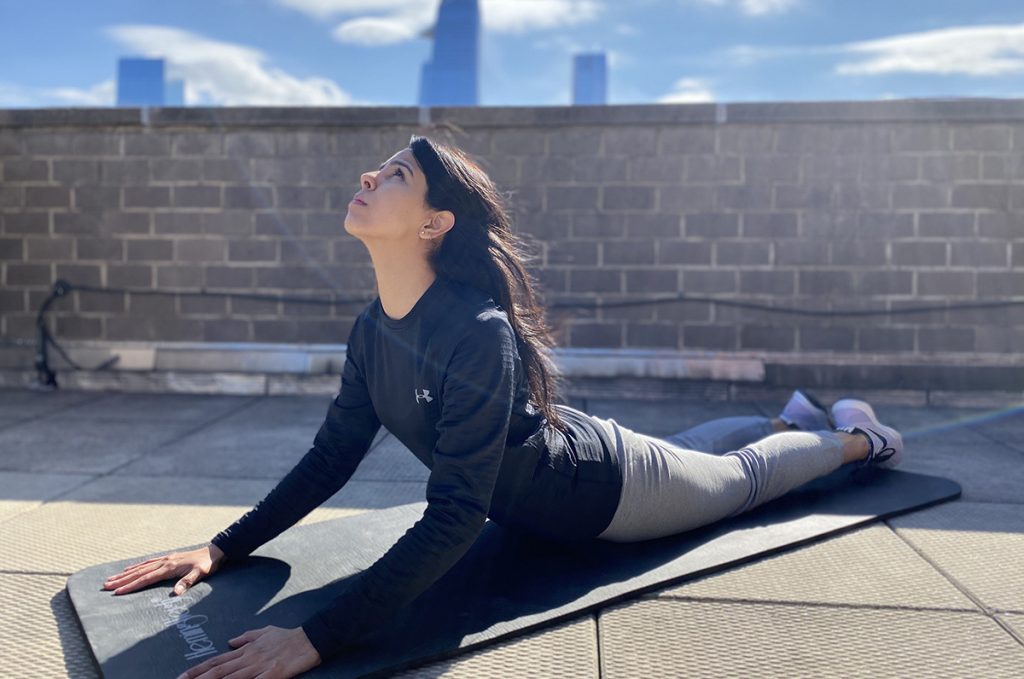
Urdhva Mukha Svanasana (Upward Facing Dog Pose): Good for strengthening back and shoulders, relieves menstrual cramps, aids abdominal stimulation and breathing, calms the mind.
2. Get as much sunlight or Vitamin D as possible.
If you can’t get enough sunlight through a window or balcony, wake up early and take a walk before 8 am when the streets are emptier. There’s also the supplemental Vitamin D which may be useful to have around at this time. Low Vitamin D can lead to lethargy, fatigue, tiredness, depression, bone loss, muscle pain, all of which we may mistakenly assume to be effects of staying indoors for too long.
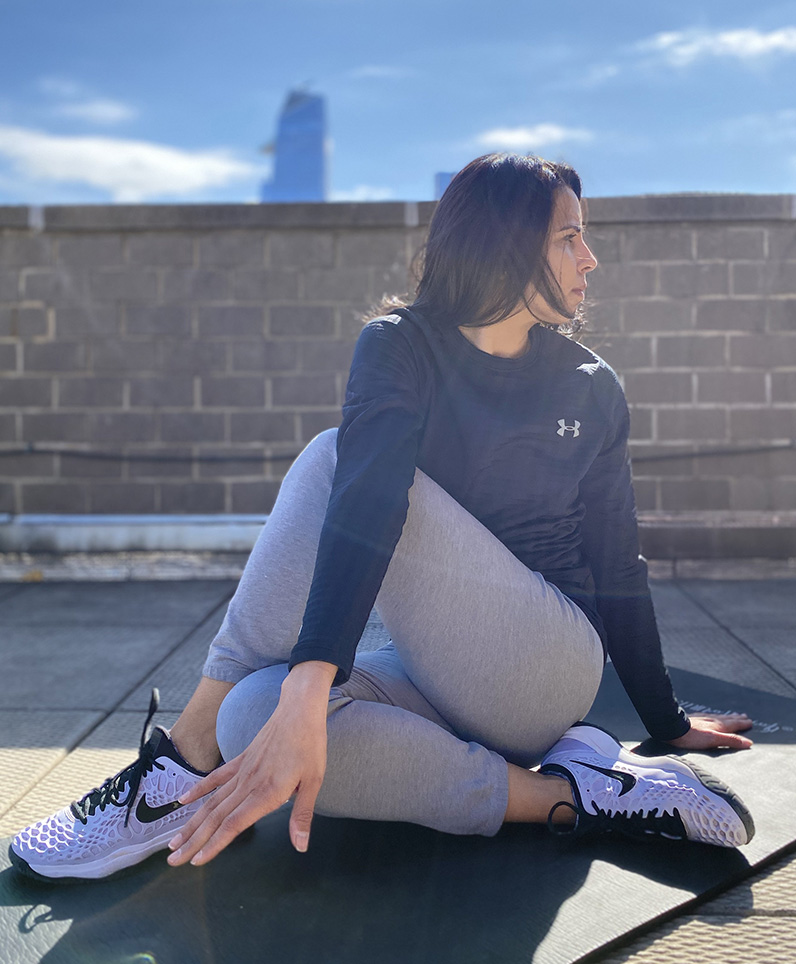
Ardha matsyendrasana (Half Spinal Twist Pose): Improves spinal and hip flexibility, relieves constipation or indigestion.
3. Exercise.
It is important for all of us who cannot directly make an impact in preventing this, to exercise as regularly as we were prior to the pandemic to give our immune systems a chance to fight it. Scientifically regular exercise has positive effects not just on your physiological system but also your mental and psychological health. Many fitness centers I know are offering virtual solutions to keep you moving. Use these resources. Keep in mind that moderate exercise that doesn’t lead to fatigue or over-exertion is key. You want to build up your immunity, not compromise it.
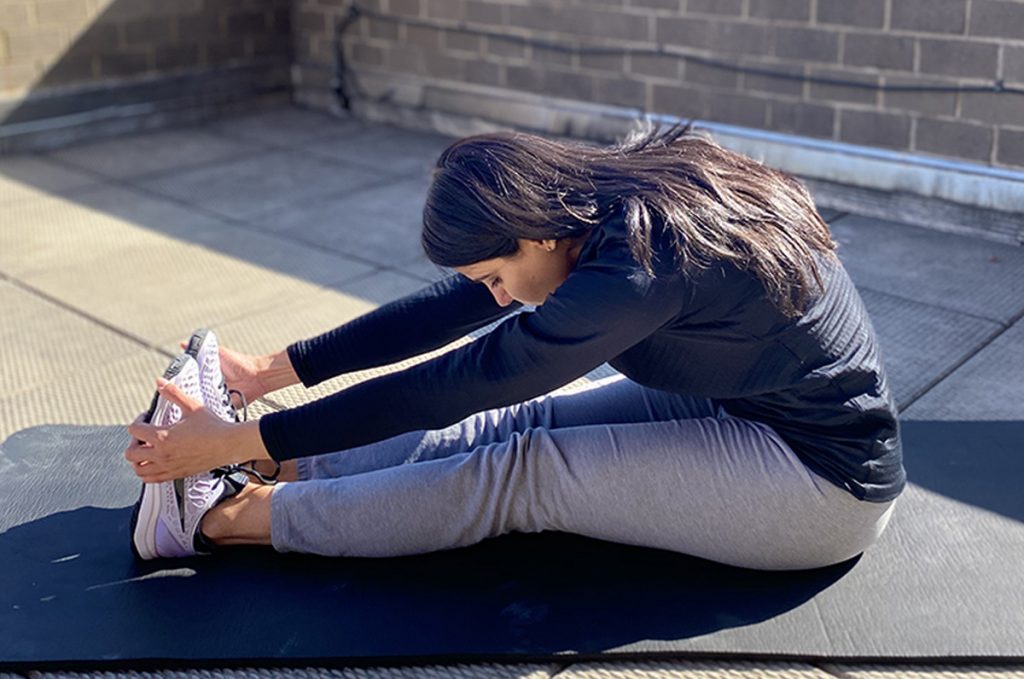
Paschimottasana (Seated Forward Bend): Stretches spinal musculature, stimulates abdominal organs, soothes headache and anxiety, aids digestion.
4. Shut off the news.
If there is something important to know, trust me you will find out one way or another. Watch a silly movie, find a new hobby but get off all your news apps. Putting our bodies in a cyclical fight or flight mode is going to set off an alarm in your brain which could lead to feelings of distress, panic and anxiety. For starters, know that we are all going to go through it at some level. So, understand that your best way to avoid it is to stick to 30 minutes or less of news watching a day.
5. Meditate — you’re going to have a lot of time during the day to ruminate.
Use it to perform some breathing exercises. Find a quiet place, put on some yogic hanging music, close your eyes and focus on your breathing. Stay still for 10–15 minutes. Let your mind come to a stop. Stop worrying, stop thinking about your parents or your kids or the food situation at home or what the president said on the news. Go to your happy place, and stay there for a little bit. Allow yourself a dream vacation for those 15–20 minutes. If you don’t have access to a quiet place, do it in the shower, but do it.
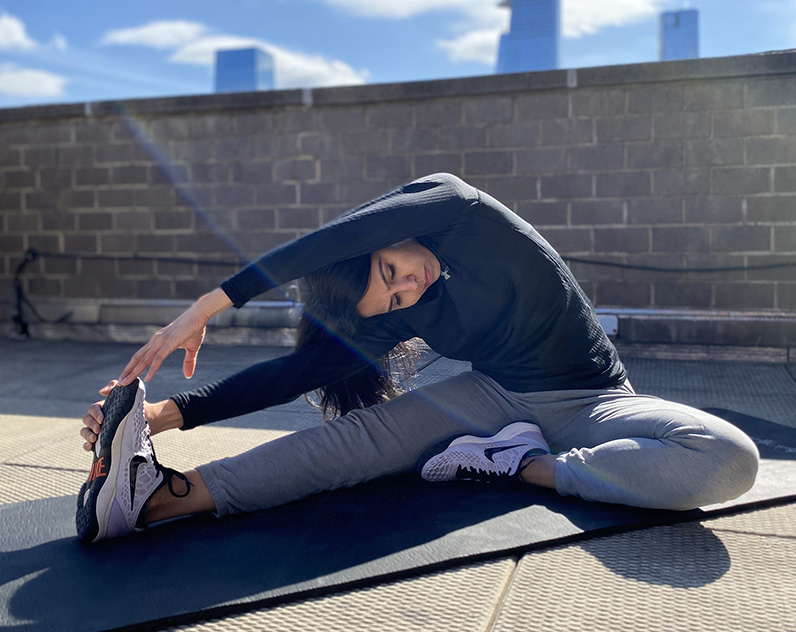
Parivritti Janu Sirsasana (Revolved Head-of-the-Knee Pose): Releases tension in intercostals, aids breathing, increases spinal flexibility.
6. Spend time getting to know your loved ones.
I believe that this pandemic was a way for all of us to come to a hard stop. The world needed a break. This time that we have together is our time to get to know each other, returning to our evolutionary instinct of staying together as a whole and functioning as one unit. Be thankful for the time you’re getting with your kids. Of course, you will want to pull your hair out or make space from your partner on some days, but this situation will test your restraint, patience, and tolerance levels. Try to confront the problems that you otherwise would run away from on the pretext of work.
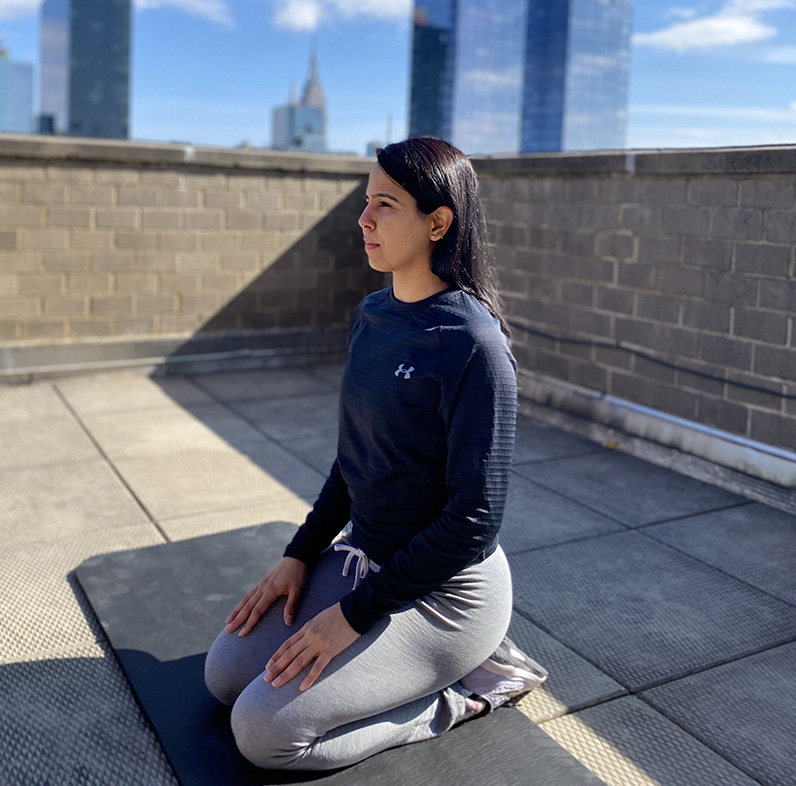
Vajrasana (Thunderbolt Pose): Relieves indigestion, acidity, constipation. Relieves joint pain. Improves focus and concentration. Best time to do it is immediately after meals.
7. Eat healthy and regularly.
Lack of food and the right nutrients combined with the effects of staying indoors and abstinence from socializing can lead to feelings of depression. It is imperative that we all understand our bodies’ needs and avoid skipping meals. I know this can easily feel like a vacation for those of us that do not have much work to do from home and reaching for that bag of chips or opening the fridge 20 times a day will be comforting, but after you’re done with your current stock of junk food, reach for the healthy bag of nuts or granola or yogurt instead. Avoid foods that send your gastrointestinal system in a tumble. Stick to light, nutrient rich meals.
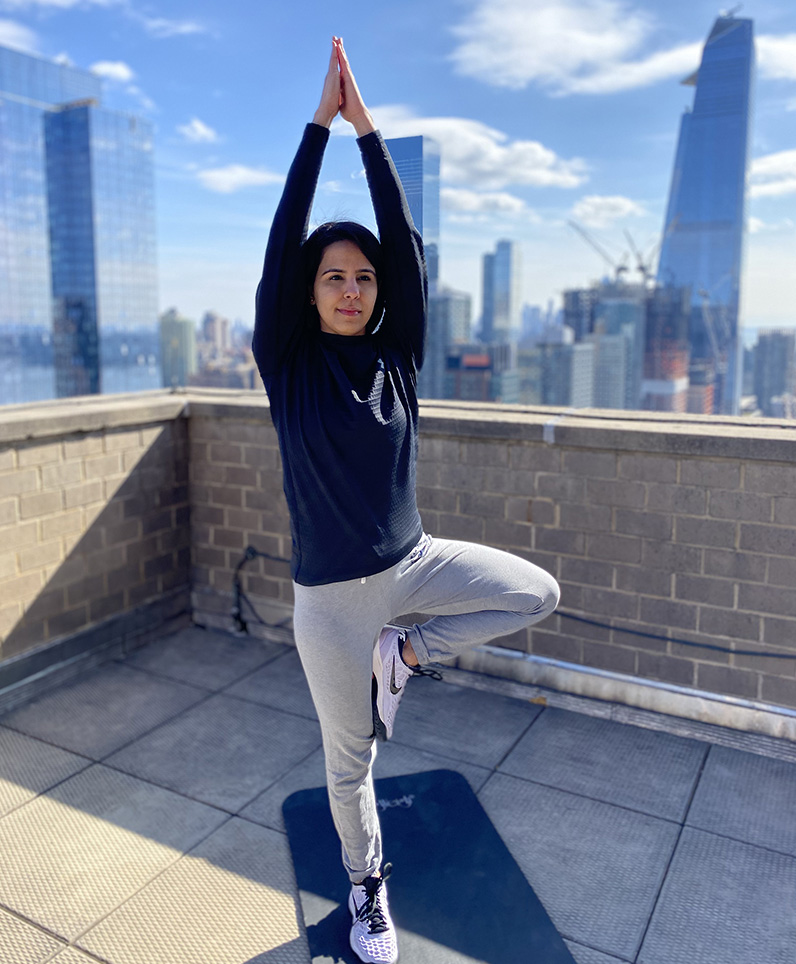
Vrksasana (Tree Pose): Improves balance and stability, strengthens lower body musculature. Improves focus, concentration and calms your mind.
8. Be kind.
It is important to remember that we are in this together and protecting ourselves selfishly is neither a solution nor in any way beneficial. Help everyone in need. Be it grandparents, elderly neighbors, house help or delivery men. Not to forget pets and animals. We can either come out of this crisis as a global community or an abominable collection of self-preserving individuals.
9. Be a global citizen.
It is also important that we take full responsibility for the things we share on social media. You may be getting your information from a trusted source or the media but keep it to yourself, let the experts have the louder voice. Fear-mongering in these times is as irresponsible as spreading the virus. News and guidelines on the virus are changing by the minute in every country. The reason you don’t see a lot of doctors on social media is because of the disparity in health literacy. How you perceive one piece of information will be different from your neighbor, father or even friend. To err on the side of caution and be a responsible global citizen, it is important to lay low and spread no news vs news that may not necessarily apply to each one of us.
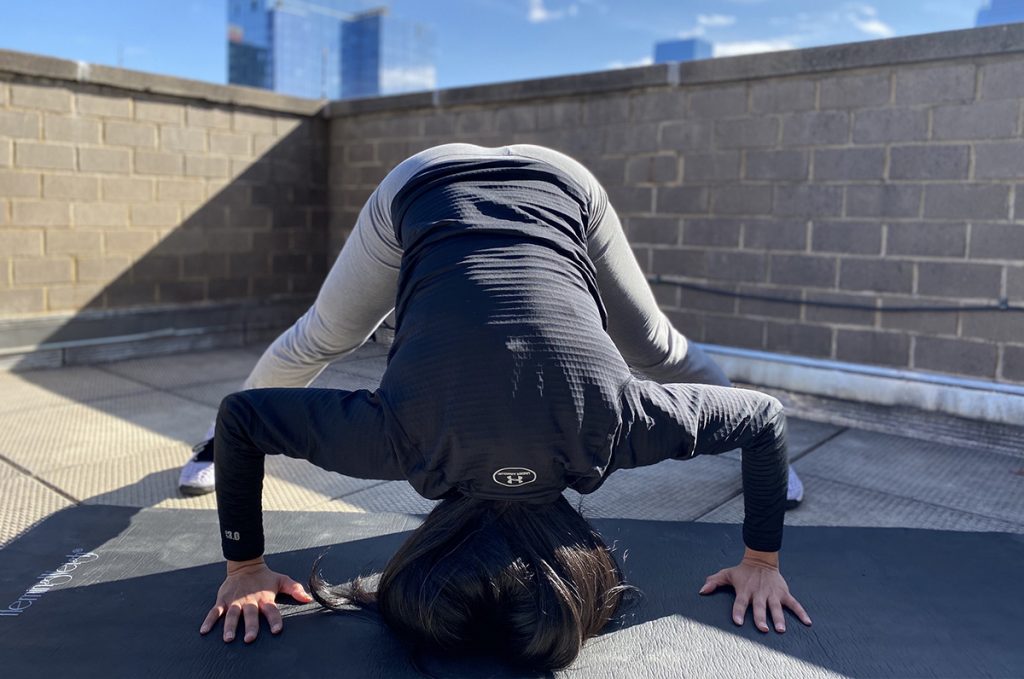
Prasarita Padottanasana (Wide-Legged Forward Bend): Stretches spinal and lower body musculature. Helps cure tension headaches and insomnia. Reduces stress and anxiety.
10. Use this time wisely.
Yes we are all in a state of “who-knows-what” but remember the last time you bought that puzzle and never finished it, or the book that you never got to or the business plan you never worked on or wished to try the Marie Kondo method but never got to it. There is a way to look at this with a cup half-full. This is the time to address the hobbies you never allowed yourself time for. Use this house arrest towards a positive outcome. Not only will it help you feel productive but will also keep you mentally engaged.
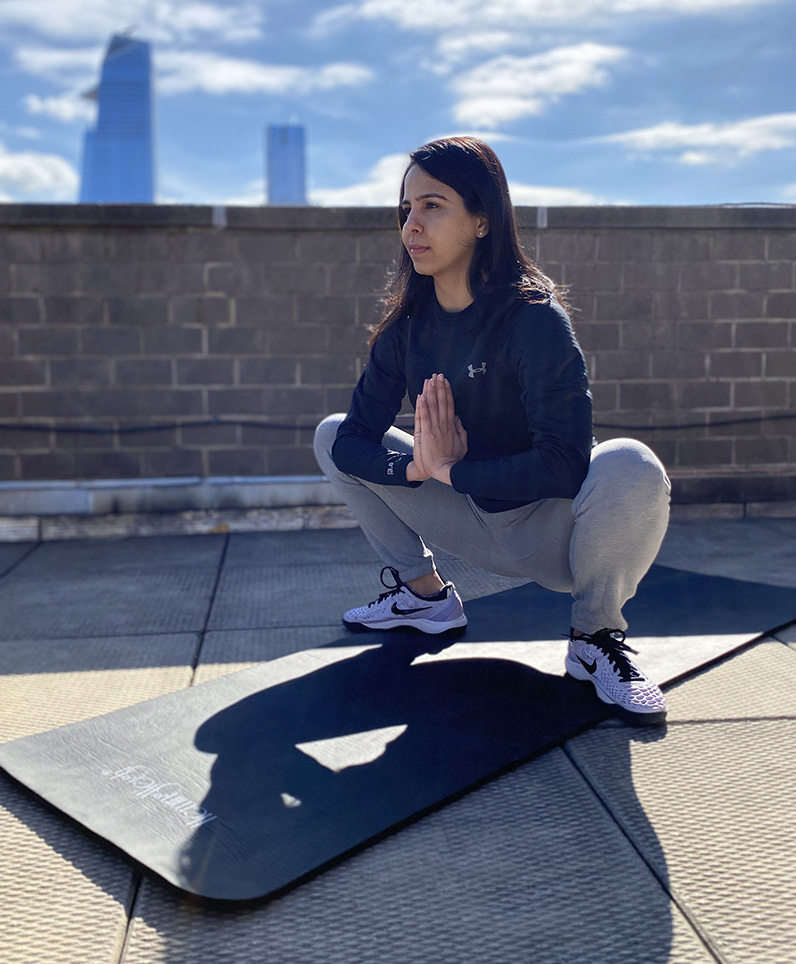
Malasana (term for various squatting)
Get up-to-date information and health tips in your social feeds